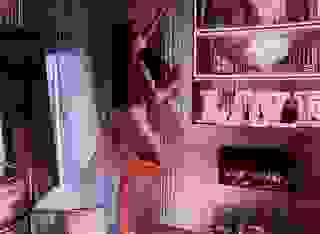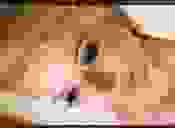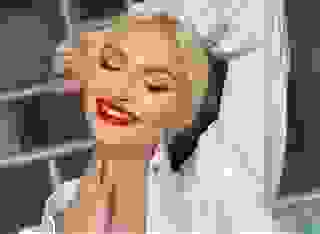Note: You can change font size, font face, and turn on dark mode by clicking the "A" icon tab in the Story Info Box.
You can temporarily switch back to a Classic Literotica® experience during our ongoing public Beta testing. Please consider leaving feedback on issues you experience or suggest improvements.
Click here"I don't suppose my asking you not to would make the slightest difference, would it?"
"No, not in the least."
He shook his head and looked away. "Well then, please, lead on...oh, great ship of state!"
She shouldered her book-bag and got behind his wheelchair and started for the hallway, then she pushed him down to the elevators. Once inside she hit the L button and they rode down to the ground floor in silence; once out of the building, a crisp autumn sun hit them and she stopped for a moment and turned his chair to face the sun.
"Better take advantage of the sun now," Beth Cohen sighed, "because a month from now it'll be long gone."
"And is that your answer to our little problem in radial velocity?"
But no, just then Sherman closed his eyes and leaned back, letting the sun wash over his face for a few minutes -- and the funny thing about it was how good the heat felt, and how he felt a little better for spending this little hidden moment out there on the quad -- but then she started to push him over to Maclaurin Hall, and from there on up to the Physics Department offices on the fourth floor.
She pushed him to his office, clearly a little winded by the time she got there. "Maybe you should think about getting one of those motorized chairs!" she said, grinning a little.
"Are you saying I weigh too much?" he snickered.
"Who? Me?" she replied, laughing along with him a little as she maneuvered his chair behind the old steel desk. "No, but I did have a few questions for you..."
"Well, then, take a seat and tell me all about the universe," he sighed, though he smiled at the girl because -- honestly -- he liked her. She was obviously smart but he could see beyond that. It was like she had a good...well, a good soul.
"Actually, I wanted to ask if you were going to be around this weekend?"
"It's Homecoming Weekend. I have to attend the game, so of course I'll be around."
"Well, you see, the thing is...my parents wanted to meet you, and my mom wanted me to ask and see if maybe you'd like to join us for dinner after the game on Saturday...?"
"I don't have any other plans, so I can't see any reason why not. Unless something unexpected comes up, let your parents know I'd love to join them -- and you, of course."
"Really? That'd be swell! I'll call dad and let him know."
"You're from New York, aren't you?" he asked.
"Yes. How'd you know?"
"I actually read up on all my students, strange as that may seem. I like to know your backgrounds and expectations, if nothing else."
"How do you..."
"Oh, I read your admissions packets. Grades, scores, activities and that horrible essay..."
"Oh dear God..." Beth sighed. "You didn't...?"
"Interested in observational astronomy since you were seven years old. Math Club, Physics Club, Chess Club, Debate Team, and you even played lacrosse. And the piano, I seem to recall..."
"You remember all that?"
"My dear, it does no good to read something and to not remember what you've learned."
"It's just that..."
"Bosh! You train your mind! You read, you recall. You test yourself constantly."
"You do that with..."
"Yes, with all my students. I owe them, and you, no less. Now, you didn't push me all the way over here because of my charm and good looks, so what else is on your mind?"
She looked away, lost -- for a moment, anyway. "I'm not sure, really. I saw you and something looked wrong..."
"Wrong?"
"Pain? Like I saw you're in pain?"
He smiled. "I think you could call it that, yes."
"From your accident?"
He nodded, still wondering where this was going.
"How long ago did it happen?"
"Oh, something like twenty five years ago," he said, looking her in the eye. "Beth? What are you getting at?"
"Like I said, Professor Sherman, I'm not sure. I just had a feeling..."
"A feeling like...?"
But the girl shook her head again. "I better go now. I've got class next period," she said as she stood and made for the door...but she stopped and turned and looked at him for the longest time, clearly conflicted. "Don't forget about Saturday, after the game, okay?"
He nodded. "Just let me know when and where."
She smiled at him, and then she was gone.
'Now, just what the devil was that all about?' he sighed, even as an owl's blinking eyes popped into view...
+++++
"I am Dr. Deborah Eisenstadt," the owl said, her amber-gray eyes blinking rapidly as she peered at Sherman through thick glasses. "And please, do not stand on my account."
Sherman knew her, of course. Everyone in the department did. The youngest Nobel laureate in physics ever, and a woman at that, her field was quantum theory and by reputation her personality was colder than absolute zero.
"Yes, please," Sherman said, standing, "do come in."
She watched as he winced and scowled. "Please! Sit! I cannot bear to see you suffer so..."
Sherman plopped back down into his wheelchair and let slip a long sigh.
"Men are so stupid!" Eisenstadt added. "Or perhaps I should say vainglorious!"
"I really wish you wouldn't," Sherman smiled. "What would the neighbors think?"
"Ah, and so the fighter pilot has a sense of humor, too?"
He coughed at that and shook his head. "We don't know each other well enough to trade insults like this..."
"Insult? How was that an insult?"
"I wasn't a fighter pilot, Ma'am. I flew attack aircraft, not fighters."
She smiled. "I see. Perhaps you will forgive me, but the distinction is lost on me."
Sherman leaned back and steepled his hands on his chest. "Well, let's see here. How can I best describe the difference...? Well, see, a fighter pilot shoots down other fighter aircraft, while an attack pilot drops bombs on people, occasionally on troops and tanks but usually on women and little children. My own personal favorite was to drop bombs on orphanages and whore-houses, all things being equal."
Her lip quivered a little, then she broke out into deep laughter, laughing so hard she started to cry a little. "Oh, dear, and here I heard you were an angry, embittered stick in the mud!" the owl said as she slapped her leg between gales. "And now it turns out you are just a garden variety, run of the mill asshole!"
Which made Sherman laugh. Harder than he had in weeks. As he stopped he had to clear his eyes, then he leaned forward in his wheelchair and grinned. "So, one asshole to another, what can I do for you this morning, Dr. Eisenstadt."
"Well, I was recently presented with a rather interesting dilemma, and my moral compass may need a little bit of recalibration before I proceed any further. Do you think you could lend me an hour or so of your time, because I'd like to, well, we may need to proceed beyond the limits of common imagination? But first, do you, by chance, happen to play the piano?"
"I do, yes. Why?"
"Well, there is a young woman I'd like you to meet. This evening, perhaps? At your home, if you please?"
+++++
As happened almost every football season, the Columbia Lions waxed the floors with the MIT Engineers for yet another Homecoming Weekend humiliation, but that usually tends to be the case when one team shows up to play football and the other team shows up with slide-rules. Sherman sat in the faculty section of the stands with Deborah Eisenstadt and Elizabeth Bullitt, a Harvard undergrad, glad that at least the temperate fall weather had held and the game had been played under ideal conditions. More than ideal, really. It had been positively hot down on the field.
Leaves that in years past would already have turned orange and reddish-gold were on this October afternoon still a deep, verdant green, and there was a hurricane tracking northwest near the Azores that the National Hurricane Center was watching; word was out that this storm might make landfall between New York City and Boston, and the climate scientists on campus were nervous. Both were unheard of events, or at least they would have been twenty years ago, but now only a few scientists bothered to think about the implications of such profound change.
Then there was Elizabeth Bullitt -- and her startling presentation.
For...while what she had demonstrated wasn't exactly time travel, the implications of being able to go back in time and view events from a bystanders perspective had left him speechless.
But perhaps that was because he had chosen to go back and examine, in detail, the night he had been shot down near the Strait of Hormuz. How odd it had been to see the Phoenix missile arcing in from below, then detonating just off his left wingtip. He'd watched himself at work in the cockpit completely oblivious to what was coming -- but just as the missile detonated he broke contact with Miss Bullitt and pulled away from the piano, and Deborah had helped him into his wheelchair as he wept.
But that wasn't the end of it. That wasn't the crux of the moral dilemma Dr. Eisenstadt faced.
Because, no, she had changed the paradigm.
"What if I told you, Dr. Sherman, that I could send you back to that aircraft of yours again. Not as an observer, but as a participant? Would you know what to do this time? Would you know how to avoid the missile that changed the direction of your life?"
And though Sherman had tried to wrap his head around what she was suggesting, in the end he rejected the proposition out of hand.
"I'm not a particularly religious person, but I do feel that things happen for a reason..."
"Really?" Eisenstadt said. "I would have never taken you as a determinist. Someone with your pedigree, a mystic?...Well, this is most unexpected...and a little unsettling."
"So," Liz Bullitt said, interrupting Eisenstadt, "if you could go back and kill Hitler when he was a baby, you wouldn't do that?"
"Because if you maintain such a position," Eisenstadt added, "aren't you saying that six million Jews died for some inscrutable reason? In other words, because God deemed their deaths necessary?"
Sherman's mind had almost blacked-out as he contemplated the implications as he worked the problem. "Take it a step further," he added. "Would you be undoing God's will if you did?"
But Eisenstadt simply smiled, the smile of someone who had watched an unwary traveler fall into an easily set trap. "But Dr. Sherman," she sighed, "once you follow that path, who's to say it isn't God's will that you undo the past? Perhaps this is a test. God is testing you, right now. Do you not see the central fallacy of this position?"
"Everyone who's taken Ethics 101 sees this fallacy, Dr. Eisenstadt, but that doesn't make the contours of the argument any less perplexing, or, for that matter, real."
"But you are a scientist!" Eisenstadt cried. "You of all people have embraced a unique worldview!"
"And I am a human being, Deborah. A being acutely attuned to the wonders of the universe, yet not so sure of my place in it that I am willing to turn my back on any of the possibilities I might stumble upon."
"So...you are willing to consider the possibility of such travel?"
"Of course I am, but I am also more than willing to tell you that you are crossing a line that perhaps you shouldn't. And I am telling you that right now because I think you should consider your next moves very carefully, certainly before you go any further with this. If your hypothesis proves workable, that such travel is indeed possible, you should consider doing so only if you do not disturb an established order."
"Well then," Liz Bullitt said, "tell me this. From your perspective, has the future already been written?"
"I tend to think that it has," Sherman said, even as he considered the impossibilities of his answer, "but let me explain. Time is, as I understand it, a continuum. Time's arrow, I think, is the most common descriptor, so if you put two people along that line, say two people separated by a thousand years, and you have an event at the midpoint between these two people, the event is viewed relativistically, or from each viewer's perspective. To one such person the event is in the future, yet to the other the event is in the past -- okay? But, and this is the tricky part, all three are on that line, they are elements along that continuum. The person in my future is there because of me, because of us, but also because of the event happening along the continuum, just as the same event is in the other person's past."
"I had never considered such a thing," Eisenstadt sighed.
"You need to spend more cold nights at the eyepiece looking at stars," Sherman told them both, grinning. "Your imagination tends to roam among the most esoteric thoughts."
"What are those?" Liz asked, pointing at three huge square framed prints on Sherman's living room wall.
"Globular clusters. The one on the left is M13, the so-called great cluster in Hercules. The center image is of 47 Tucanae, in Tucana..."
"Tucana? What's that?"
"The toucan bird. That's a constellation in the southern sky so most people up north are unfamiliar with it. The image on the right is the grand-daddy of all the globulars, Omega Centauri, in Centaurus, and it's the biggest globular in our Milky Way galaxy."
Liz stood and walked over to the image of Omega Centauri and instinctively she peered into the center of the cluster. "Geez, how many stars are in this thing?"
Sherman chuckled. "The best current estimate is ten million."
"What the fuck!" Liz cried, astonished. "You can't be serious!"
"Well, yes, I can be. There are only ten thousand in 47 Tucanae, while M13 has a few hundred thousand stars."
"And these things are just floating around out there in space? Did we just discover them or something?"
"Not really, but our understanding of them is growing. We don't know why yet, but these structures are all located in our galactic halo..."
"Our...what?"
"Well, our galaxy, the Milky Way, is a big spiral galaxy, and the galaxy's spiral arms come together at a central region, like the nucleus of a cell, and there's a big cloudy halo around this nucleus. All of these globular clusters are located in this halo, but the strange thing is we've found the same halo structures around other nearby galaxies, and these halos are populated by globular clusters, so they actually appear to be fairly common."
"Maybe I should take a class or two in astronomy," Liz sighed.
"You know," Eisenstadt said, "it occurs to me that molecules have a nucleus and that electrons orbit these structures, and some of us have begun to call these orbital clouds halos. Could these globular clusters be some sort of analog?"
"I've tried to think of them in that way," Sherman said -- a little reluctantly, "but I'm just not sure the analogy holds. The assumption is that there is a huge black hole in the galactic nucleus, and there is contradictory evidence that there might be smaller black holes in the central regions of globular clusters. Now...the curious thing is that Omega Centauri shows up on an HR diagram as 13 billion years old, but that would make it one of the oldest structures in the universe, which is kind of odd."
"Unless the small black holes in these clusters are somehow mediating the central black hole," Eisenstadt replied.
"The thought has crossed my mind," Sherman sighed.
"And you two have totally lost me..." Liz Bullitt said, though she was still staring at the image of Omega Centauri -- and wondering why all of a sudden she knew this thing was going to be very important to them all.
+++++
Beth Cohen had left a message on Sherman's home telephone that dinner reservations had been made for six-thirty that evening. They didn't want to presume but had made reservations at the Chart House out on the old pier past the Marriott Long Wharf Hotel, and for an instant he thought about calling and cancelling, but then he reconsidered. He needed a night out with non-academic types every now and then and tonight, he reasoned, would fit that bill perfectly. He recalled her father was some sort of stock-broker in New York City and that her mother was a physician of some sort, so they'd be interesting, articulate people perhaps worth getting to know, certainly worth spending a Saturday evening with. So...he'd left the stadium -- and Deborah and Liz -- and returned home to change clothes -- and his leg -- then he called for a taxi and waited down on the street for the cab to arrive.
He'd not been to this Chart House but had always enjoyed the one in Annapolis, and this one was similar -- yet different. Dark woods and vibrant tropical prints defined the interior, and this restaurant appeared to be scattered up multiple floors, while it seemed every window looked out on Boston Harbor. He was early and waited in the bar off the entry, but Beth showed up moments later -- looking pale and quite upset.
"Is something wrong?" he asked when she took a seat across from him, though he noticed she no longer looked like the frumpy Jewish academic and had dressed up for the evening. He had to admit she looked lovely, too.
She nodded to his question. "Something's up between mom and dad," she'd said, describing lots of shouting in their hotel room as she looked on in horror one more time, "so I told them I'd come on over without them."
"I see. Is this a new development?"
She shook her head, though tentatively, almost embarrassed to be admitting all this to a stranger. "No, not really. It usually just simmers along at a low-boil, but occasionally things get out of control."
"Should I leave, or am I needed for moral support?"
She smiled, but even so he could tell she had recently been close to tears, if her reddened eyes were a reliable indicator, anyway. "If you don't mind, moral support sounds real good right now."
"Then here I am, m'Lady, the wounded warrior in all my faded glory! I stand ready to support you! Now...are you 21 or did you bring fake ID?"
"Neither. I don't drink."
"Now that is indeed curious, Beth Cohen. An undergrad, and in Boston no less, who doesn't drink. Surely you know you are a statistical impossibility?"
She laughed and he enjoyed the change that came over her. "I hate to admit it, but I'm a Diet Coke fiend."
He scrunched up and contorted his face before he let slip a long "E-e-e-w-w-w-w, no, not that foul brew!"
"Sorry, but there it is. I'm an addict!"
"Why don't you take a walk on the wild side and have a plain old Coke?"
She took out a small vial from her purse and handed it him, and when he turned it over in his hand he saw it was some kind of insulin -- and he handed it back a little sheepishly. "Sorry 'bout that," he whispered.
"No apologies, please. I just wish I'd brung a camera! Those faces! Those would make excellent blackmail material!"
"I doubt you'll need any. Your answers were perfect."
"Really? You graded our papers already?"
"Every group, yes. Last night, as a matter of fact. And your group did very well."
"When are we going out to the observatory?"
"If the weather cooperates, still next week -- as planned."
He watched as Beth's parents walked into the bar just then; her father appeared to be an imperious, overbearing oaf used to pushing people around, while her mother seemed to be, predictably enough, an easy-going, gracious woman who was also rather easy on the eyes. Tall, almost willowy, Betty Cohen looked -- on this first glance, anyway -- like a pure-bred Manhattan socialite. Austere, almost Japanese infused couture that seemed lifted right out of a film-set from the 40s, and though she had deployed make-up for the evening nothing about her face appeared garish or over-done.
Marcus Cohen, on the other hand, was bordering on the fat side of the equation, and his Brooks Brothers tie looked a little like a hangman's noose. As it was still warm out, Marcus had donned khaki slacks and a light blue shirt under an old navy blazer -- complete with some kind of bogus crest sewn on the left pocket -- and Sherman did his best not to laugh out loud when he saw that.








